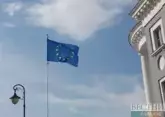Merkel will quit politics when she steps down as German chancellor, and has privately made clear she’s not interested in leading the EU. Buzz Feed News reports in its article Angela Merkel Doesn’t Want Either Of The EU’s Top Jobs that Angela Merkel is not interested in becoming the next president of either the European Commission or the European Council — the two most senior positions in the European Union.
A senior European government official told BuzzFeed News that Merkel has privately made clear that she will not put her name forward for the posts, and doesn’t want to be asked by other EU leaders to take the jobs either. Merkel announced last year she would quit politics when her fourth term as German chancellor ends in 2021, but speculation that she could resign early for a career in Brussels has not gone away. “She was clear that she should not be part of the equation when the top EU jobs are discussed,” the senior official, who is not from Germany, said. “She isn’t playing games.”
A second source with knowledge of Merkel’s thinking said, “She is totally clear that when her term as chancellor ends she will not seek any other political post.” EU leaders will meet in Brussels later this month to begin the process to decide the next leadership of the European Commission — the EU’s executive branch — and the European Council — the EU institution consisting of the bloc’s heads of government and state that sets the EU’s overall direction and priorities.
The two posts, as well as the head of the European Central Bank and the EU foreign policy chief, will become vacant later this year, and months of vigorous haggling among EU leaders is expected.
The positions are instrumental in defining the shape of the EU’s political and economic direction. Under the EU’s treaties, the EU leaders nominate the president of the European Commission, but the candidate then needs to be approved by the European Parliament.
At a meeting of EU leaders in Sibiu, Romania, last week, the current president of the European Council, Donald Tusk, confirmed that the leaders would meet May 28, days after the European parliamentary elections, to start the nomination process to decide the EU’s new chiefs.
Tusk told reporters after the meeting that he wants the process to be quick. “My intention is to carry out the election of heads of EU institutions in a swift, smooth and effective manner,” he said.
He added that it was his intention for the EU leaders to be in a position to nominate the new leadership at a European Council summit in mid-June.
Going into the meeting in Romania, several EU leaders, including French President Emmanuel Macron, voiced their opposition to the “Spitzenkandidat” (“leading candidate” in English) concept, the idea that the nominee of the largest parliamentary group after the European Parliamentary elections gets the presidency of the European Commission. Other leaders, such as Austrian Chancellor Sebastian Kurz, back the process.
Based on current polls, the process would see German MEP Manfred Weber, the lead candidate of the centre-right European People’s Party, succeed Jean-Claude Juncker, the European Commission's current president. The social democrats' lead candidate is the Dutch politician Frans Timmermans, the current vice president of the European Commission.
A senior European government official told BuzzFeed News that the two main Spitzenkandidaten would most probably fall short after this month’s EU elections, paving the way for a third candidate — with the EU’s Brexit chief negotiator Michel Barnier seen as the frontrunner — decided by EU leaders. The top jobs would unlikely be agreed on the basis of “right versus left” or party political lines, said the official, but would be determined primarily by “nationality, geographical and regional dynamics, and personal chemistry."










